Heating of grass playing surfaces
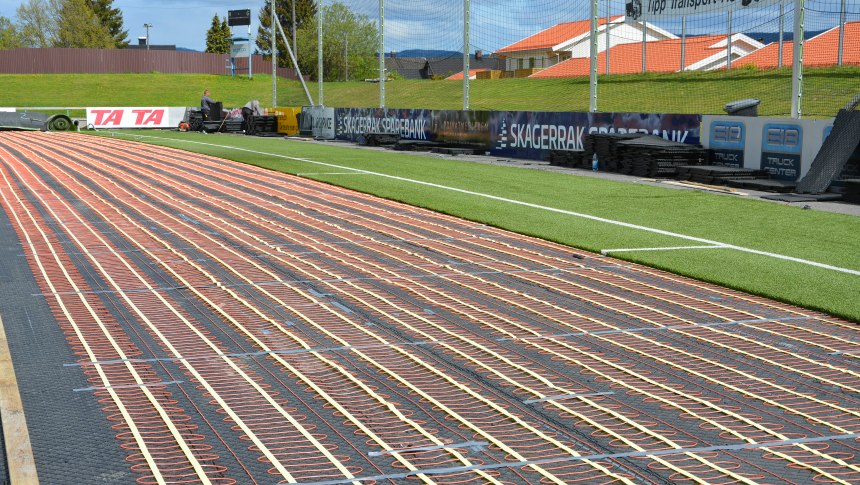
Although hot water heating systems have dominated in our conditions so far, in recent years the position of electrically heated grass surfaces has been demonstrably strengthened. Electric heating is gaining ground even more strongly in Europe in the segment of heating playing fi elds with artifi cial grass. Heated playing fi elds are especially popular in the Nordic countries of Europe or in places with higher altitudes, both in training centers and in major stadiums.
Electric heating has a number of advantages compared to hot water heating. The only source is electricity, so there is no need to worry about the source that heats the hot water heating (gas, boiler room, etc.). Water consumption is completely zero, and antifreeze mixtures that protect hot water distribution systems from freezing are eliminated. Thanks to the absence of pipework fi lled with Glycol, electric heating is also signifi cantly safer and more environmentally friendly. Electric heating does not require regular maintenance and service. However, precise and very fast regulation of electric heating is a key advantage. Long-term experience from operation shows that in terms of the speed of response to changes in outdoor temperature, electric heating is very fast and thus more energy effi cient. Hot water systems are not able to provide this fl exibility and accuracy in supplying the small amount of heat required.
Benefits
- solution for both natural and artificial grass playing surfaces
- electricity as the only power source
- maintenance-free and ecological heating without antifreezing mix (Glycol)
- precise and very quick regulation, intuitive control system
- easy installation into existing natural grass football pitches
- extension of the playing season, accelerating the regeneration of the pitch
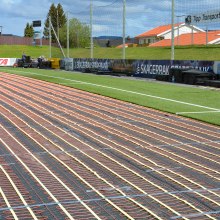
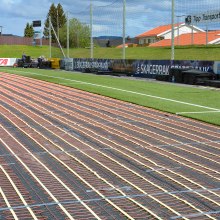
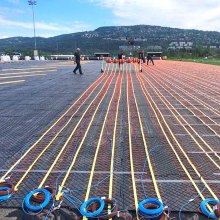
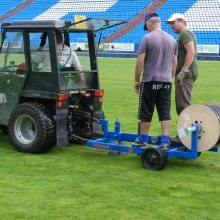
 Heating cables for outdoor surface
Heating cables for outdoor surface Heating mats for outdoor applications
Heating mats for outdoor applications The D-MAT heating sheet
The D-MAT heating sheet